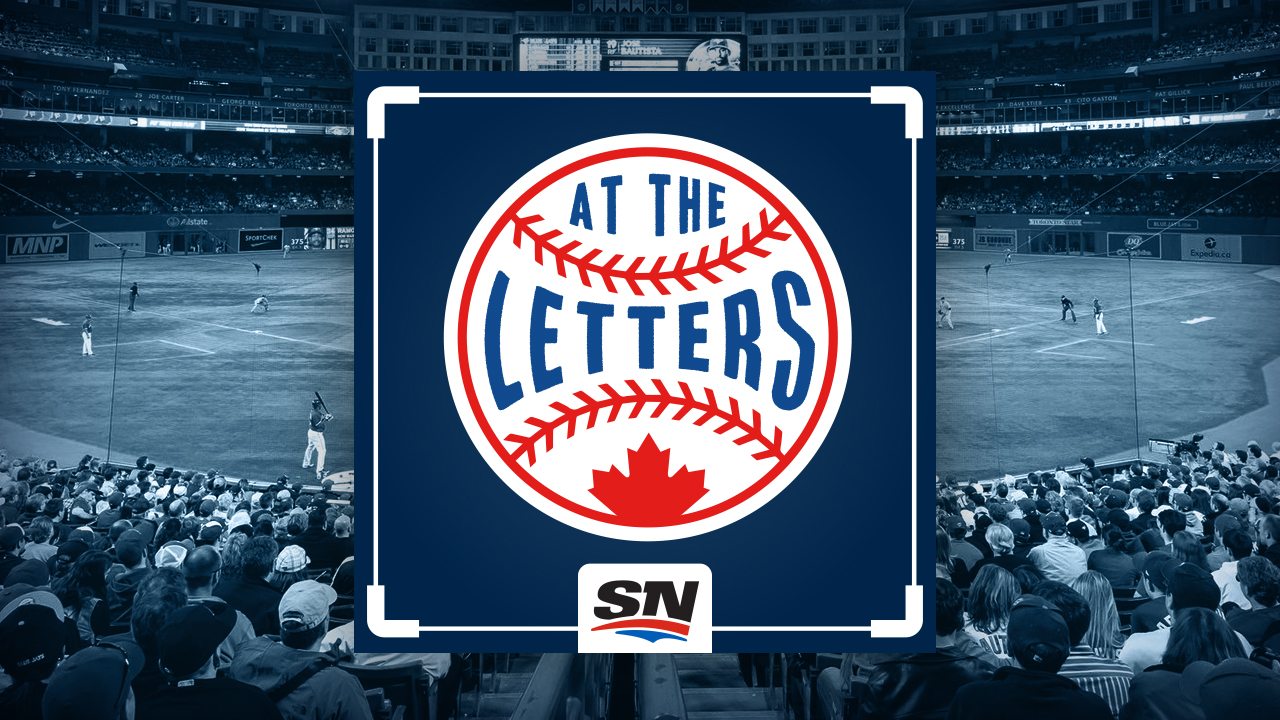It should be a good news day when word comes out that the Toronto Blue Jays have signed their MVP – the American League MVP – to a two-year extension at a fairly reasonable rate.
So it was odd to detect the lingering static in the reaction to that good news. On social media and call-in shows, the notion was floated by some fans that the Jays’ winter thus far has been “underwhelming.”
Maybe that’s striking because of the occasion. Maybe it shouldn’t be, given that it’s certainly not the first time this has come up this offseason. Since David Price left his short-term rental on our side of the border, there continues to be some sense that the super-team of last summer has been dismantled.
With every signing the Jays make – big, small, overt, sneaky, what have you – there’s an element of the reaction that questions whether the move is really enough. It certainly came across at the Pitch Talks event I attended in Ottawa, and continues as a dull hum just beneath the conversation throughout the winter.
Certainly, some of the assertive moves by chief rivals such as the Red Sox and Yankees should cause fans some pause. Their aggressive approach to adding big scary arms to the back of the bullpen has seemingly already paid dividends, if the anxiety of this fanbase is much to go on.
(And wait until Jays fans really wrap their heads around Carson Smith, and the impact he could have on Boston’s late innings. Unless, of course, my personal hexing of him somehow works out.)
Even the Orioles’ re-signing of Chris Davis and likely signing of Yovani Gallardo is enough to make even level-headed fans somewhat uneasy.
But in the Blue Jays’ defence – and with an admission of some bias on my part – it could be argued that they’ve had one of the stealthier offseasons among MLB teams.
No, they didn’t make the proverbial big splash in the free agent market, but the early deals that they made for Marco Estrada, J.A. Happ and Jesse Chavez look better with every passing day. It can be easy to forget that Estrada’s ERA was as low as it was (3.13!), or that it ranked fifth in the AL last year.
Both Happ and Chavez have their warts, but both of them had streaks of remarkable success at times last year, and provide much-needed pitching depth that actually enhances the standing of the staff as a whole.
Add to that the deal to use surplus position players to get a legitimate back-of-the-bullpen arm (and seemingly righteous dude) in Drew Storen, and the Jays seem poised to make the late innings of games extremely uncomfortable for opponents.
In essence, the Blue Jays took an excellent playoff team, and made it competitive again. But maybe that’s the rub. It could be that the term “competitive team” has come to be read as code by some fans, especially those for whom last year’s success barely salved over the decades of failures.
Certainly, we heard GMs and managers assert over the years that “we think we’re going to be competitive” or “we think we’ve got a competitive roster,” but those words seemed euphemistic, an indication that the team aspires only to scrappily gnaw at the heels of the behemoths, but never seriously challenge them.
The difference this year is that the Jays are the behemoths, and outside of one spectacular rental and one veteran arm, they return with most of their roster either intact or even enhanced.
But they are certainly not an “unbeatable” team. If I recalibrate to listen closely to what’s just beneath the surface of the apprehension, this appears to be the expectation some have. There might be an expectation that the front office should have taken a strong team and not just made it stronger, but made it clearly the strongest. To keep far ahead of the division, and make the next leap forward in the playoffs.
But if building an invincible beast is the goal, it’s certain to be one that’s just beyond our grasp.
Roster construction is a very tricky bit of business, and even if you throw almost infinite money around, you can still end up with flawed or unlucky teams. The Yankees of recent years have come to understand this, and even the Los Angeles Dodgers have seemingly pulled back the reins on their profligate ways. The Detroit Tigers spent their way to the AL Central basement last year, while the Washington Nationals Los Angeles Angels have managed little more than middling success, despite the presence of young generational talents surrounded by expensive veterans.
Does anyone remember how the Nationals were supposed to be a shoo-in for 100 wins last season? How did that work out?
This isn’t an argument against spending on players, but simply a caution against unrealistic expectations, and a reminder of one of the most beautiful aspects of the game of baseball: It’s damn hard to win.









